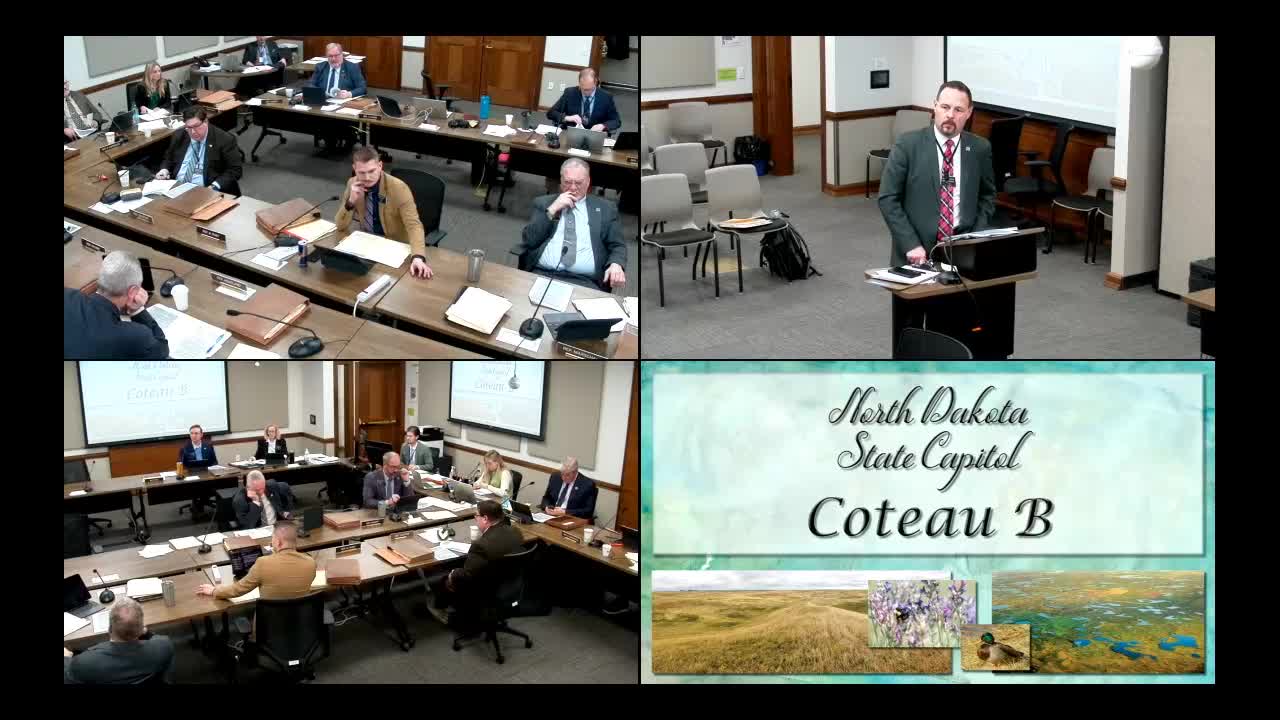Committee reconsiders septic-system bill; sponsor adds statewide standards, local permitting roles and a $99,500 appropriation
Get AI-powered insights, summaries, and transcripts
Subscribe
Summary
Representative Koppelman presented a revised House Bill 1541 that would centralize septic technical standards with the Department of Environmental Quality while preserving local permitting and inspections and creating a seven-member advisory committee.
Representative Koppelman asked the committee to reconsider House Bill 1541 after negotiating changes with stakeholders; the amended draft restores concordance between DEQ, local public-health units and septic installers.
Under the amendment, the DEQ would adopt statewide technical rules for septic-system design and installation, but the rules would be recommended and reviewed by a seven-member advisory committee composed of three septic installers, three local public-health unit representatives and a DEQ nonvoting designee. Local public-health units would retain authority to perform permitting and inspections and could enter cooperative agreements with political subdivisions to deliver those services.
Koppelman said the amendment responds to health-unit requests that local agencies not be permitted to create separate licensing requirements on top of state licensure. He described safeguards to protect homeowners with functioning systems: the bill limits a local health unit’s ability to require replacement of a repairable system within 10 years and includes transitional language that preserves existing systems’ operability while owners schedule repairs or replacements.
Koppelman also described a $99,500 appropriation included in the amendment to cover startup activities; he said the amount was chosen to avoid triggering an automatic referral to the appropriations committee, while other funding and special-fee revenue held by DEQ were expected to offset more substantial costs.
The committee unanimously adopted amendment 01004 to House Bill 1541 by roll call and asked members to continue refining language on timelines and buyer disclosures; Representative Marshall was asked to work with the sponsor on follow-up wording for the inspection timing and grandfathering provisions.
Ending: The committee adopted the amendment and moved the bill forward for further drafting; members asked sponsors and stakeholders to continue work on the timing and disclosure mechanics.
